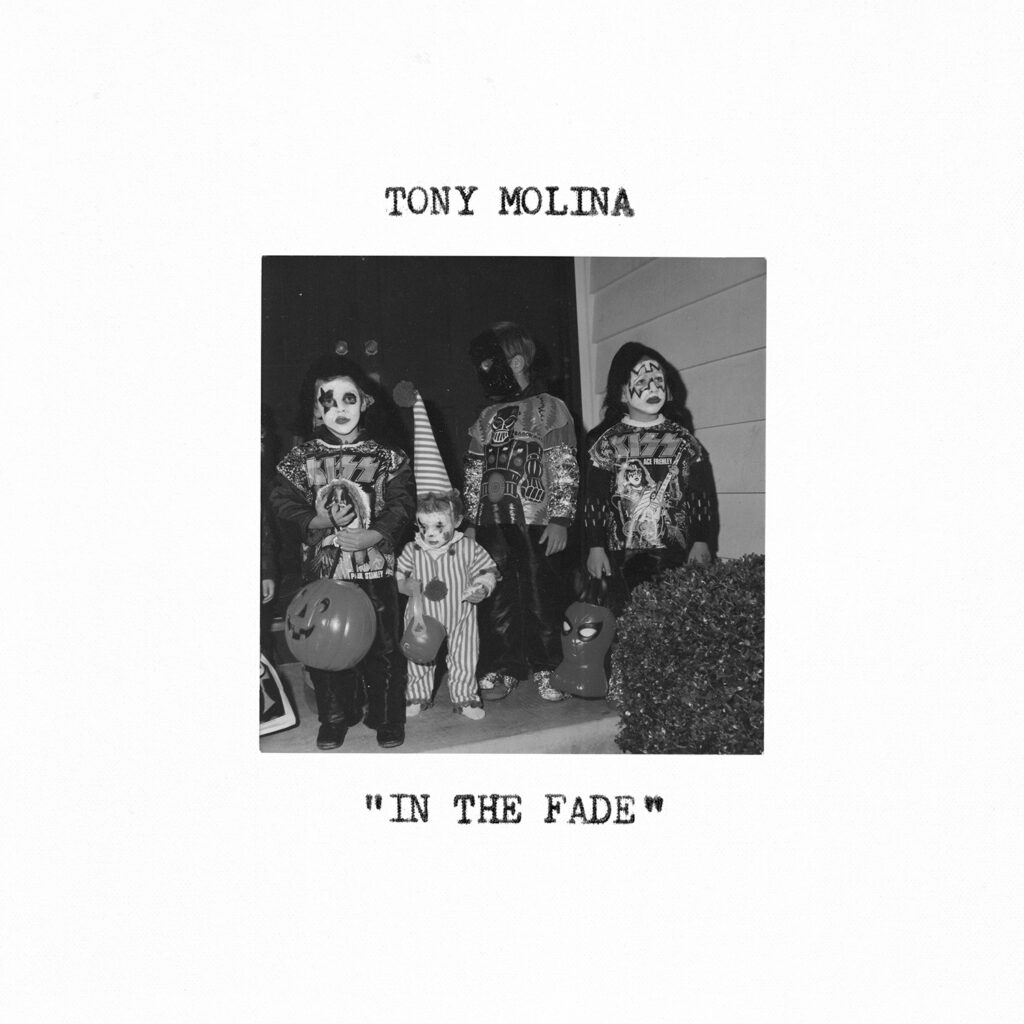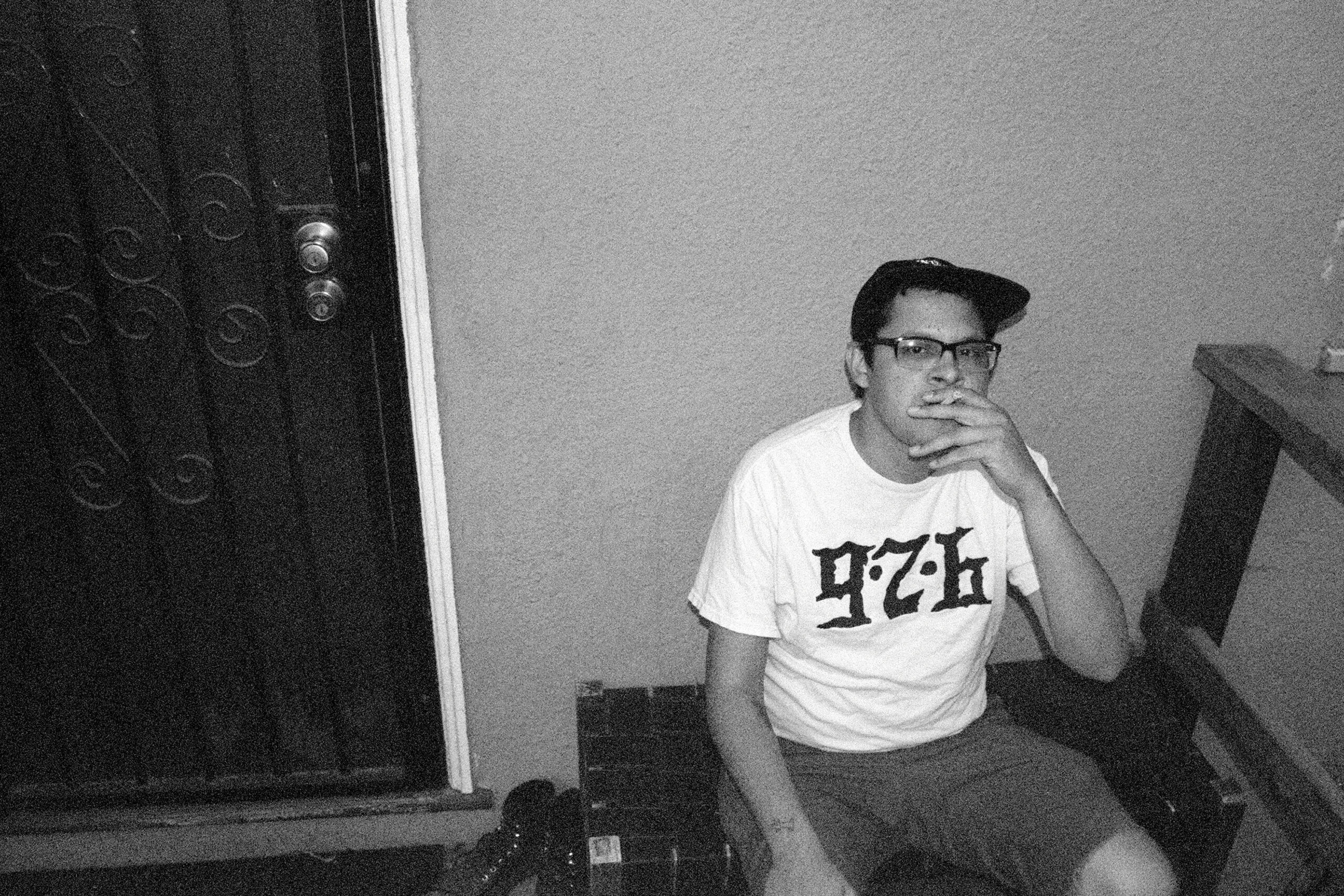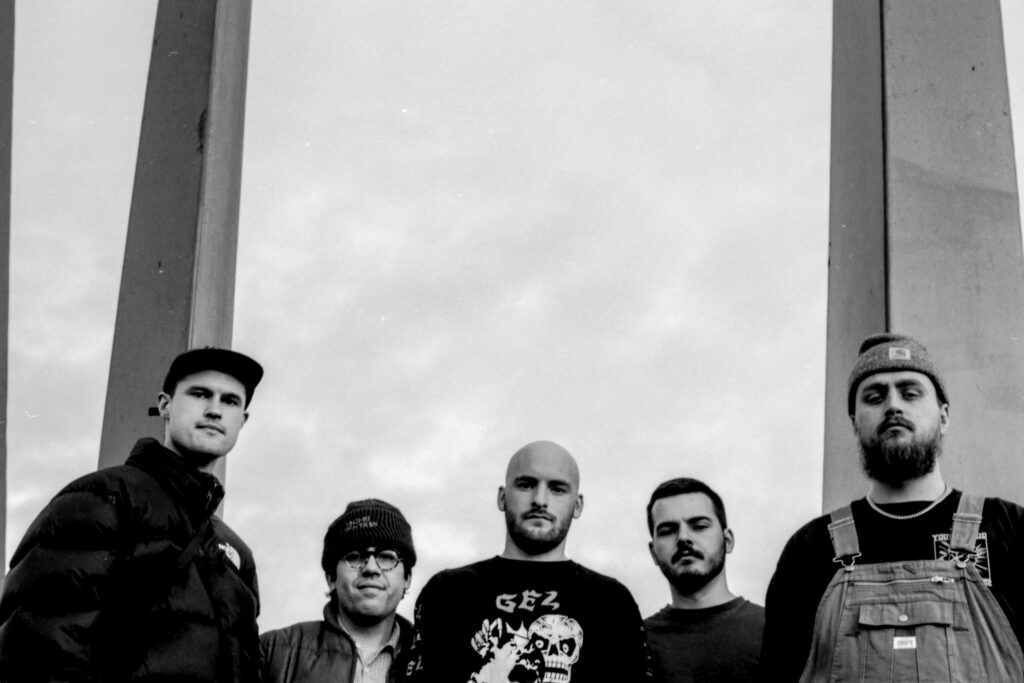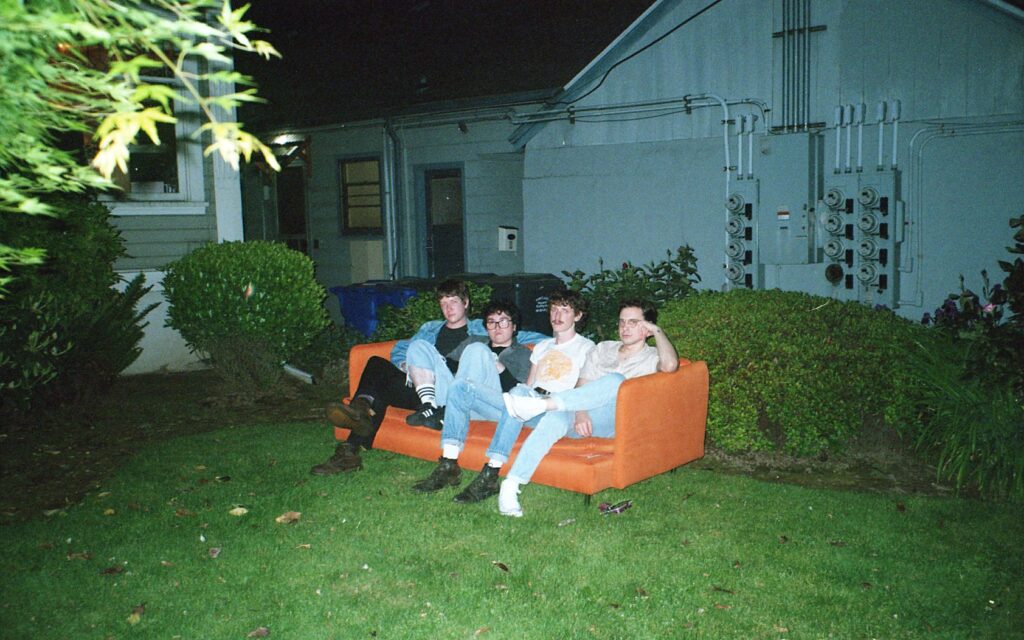Tony Molina loves and appreciates a well-crafted song, and he’s one of the absolute best in the game at writing them. What he doesn’t love so much is being told he’s “maturing” as a musical artist. His last solo album had what could be described as a jangly, ’60s-ish sound, and some listener reactions threw him off a bit. “I kept hearing: ‘Oh, he’s maturing, he’s getting into other shit, writing more mature stuff,’” he says. “I thought, ‘Man, that’s kinda lame, no I’m not…’ Any time somebody expects something of me, I’m usually gonna do the opposite.”
Running the other way isn’t exactly how his new record came about, but writing and recording In the Fade, Molina’s first under his own name in four years, did provide occasion to look back in time through his lengthy musical history while also blazing a new path forward. In early 2020, embarking on recording a new album, he started taking inventory in a way he hadn’t really done before, delving deep into his personal archives for songs that might fit alongside the new material he’d been writing and demoing.
Many of the ostensibly “mature” musical elements that some listeners have latched on to in his recent work — piano, Mellotron, the occasional English accent – actually date back well over a decade to Ovens, the criminally underrated band with whom Molina wrote and recorded five albums in the early to mid-2000s. In the Fade revisits a few songs from those days.
“I had a bunch of old stuff that I had tried recording in the Ovens days [as well as] some songs that only got to the demo stage back then and I kind of forgot about,” he says. There were several gems to be found in there, and they helped set him off on the path to making a record that’s arguably his best yet.
Molina likens In the Fade to a compilation, encompassing every phase of his recording career to date while also fitting together as a tight, endlessly listenable album. “The main thing I was trying to tie everything together with was just really good melodies for the entire record, all the way through,” he says. “Every song I wanted to have a really solid hook, because there are different styles.” These hooks permeate the record’s heavier guitar-pop tunes as well as its more delicate folk-rock and indie-pop tracks. As he describes it, In the Fade is a very “pop” album. It’s a return in part to the Ovens sound, but also features elements of his more recent material and introduces some intriguing new wrinkles.
The record has an audible, effortless-sounding ease and coherence to it. This is remarkable given not only the album’s musical range but also the time span over which it was written and recorded. Sessions began in March 2020, days before things began to shut down due to Covid, and occurred on and off over a long stretch of time. Every time cases died down a bit, longtime friend and recording whiz Jasper Leach would book a flight into town and they’d hit the studio. Recording took place with Bay Area recording engineers Jack Shirley and Bart Thurber, both of whom Molina has worked with for years now, at their respective studios. Sessions were productive, but the fluctuating nature of the pandemic meant some of them occurred as much as a year apart. The long gaps between sessions sometimes prompted Molina to wonder if they would ever get to finish what they started. He recalls one particular trip to the studio on an empty BART train (an exceedingly rare sight in the pre-pandemic Bay Area) that made him wonder whether he was supposed to be doing what he was doing.
They were, thankfully, able to complete the record, and they also achieved one of Molina’s chief aims entering the process: having fun with friends in the studio. That sense of fun is something you can hear throughout, and he’s delighted about his friends’ many contributions to the record. Sarah Rose Janko of Oakland band Dawn Riding, who’s also Molina’s bandmate in The Lost Days, provides added vocal harmonies (a first on a Molina solo record) to a number of songs. Leach’s contributions are all over the record, perhaps most notably on “I Don’t Like That He.” Molina describes it as the “most indie pop-sounding song” on the record, and a tribute to “Chicago New York” by Bay Area indie-pop legends The Aislers Set. “I was just doing these really simple acoustic guitar parts and Jasper laid down this really solid drum take, and he added piano and organ to it, and it just filled the whole song… he added those solos, he did the harmony on a 12-string, and then he doubled the harmony on a piano.”
The album evokes the sounds of some of his favorite bands: Fastbacks, The Flaming Lips, The Muffs. The simple yet ornate “Burn Everyone,” which evokes Teenage Fanclub’s Norman Blake at his wistful best, is one of a few songs for which he cites listening to a ton of Belle and Sebastian at the time. Another one of these is “Not Worth Knowing,” where he wanted a verse with a ’65 Stones sound and a chorus unlike any he had done before, with a countermelody from the Mellotron.
“Years Ago, Pt. 2”, meanwhile, gracefully channels Abbey Road-era Beatles, and the record closes with a cover of “Fluff”, one of Tony Iommi’s gentle acoustic guitar instrumentals for Black Sabbath.
It would be impossible to encapsulate the entire Tony Molina musical worldview in a single record. This is a man whose home stereo, in a single day, could be blaring The Move, Malo, Internal Bleeding, Dear Nora, and The Melvins. All that said, you’d be hard pressed to find a better entry point to his work than In the Fade, a record that Molina sums up tidily: “I think it ties the entire catalog together.”






